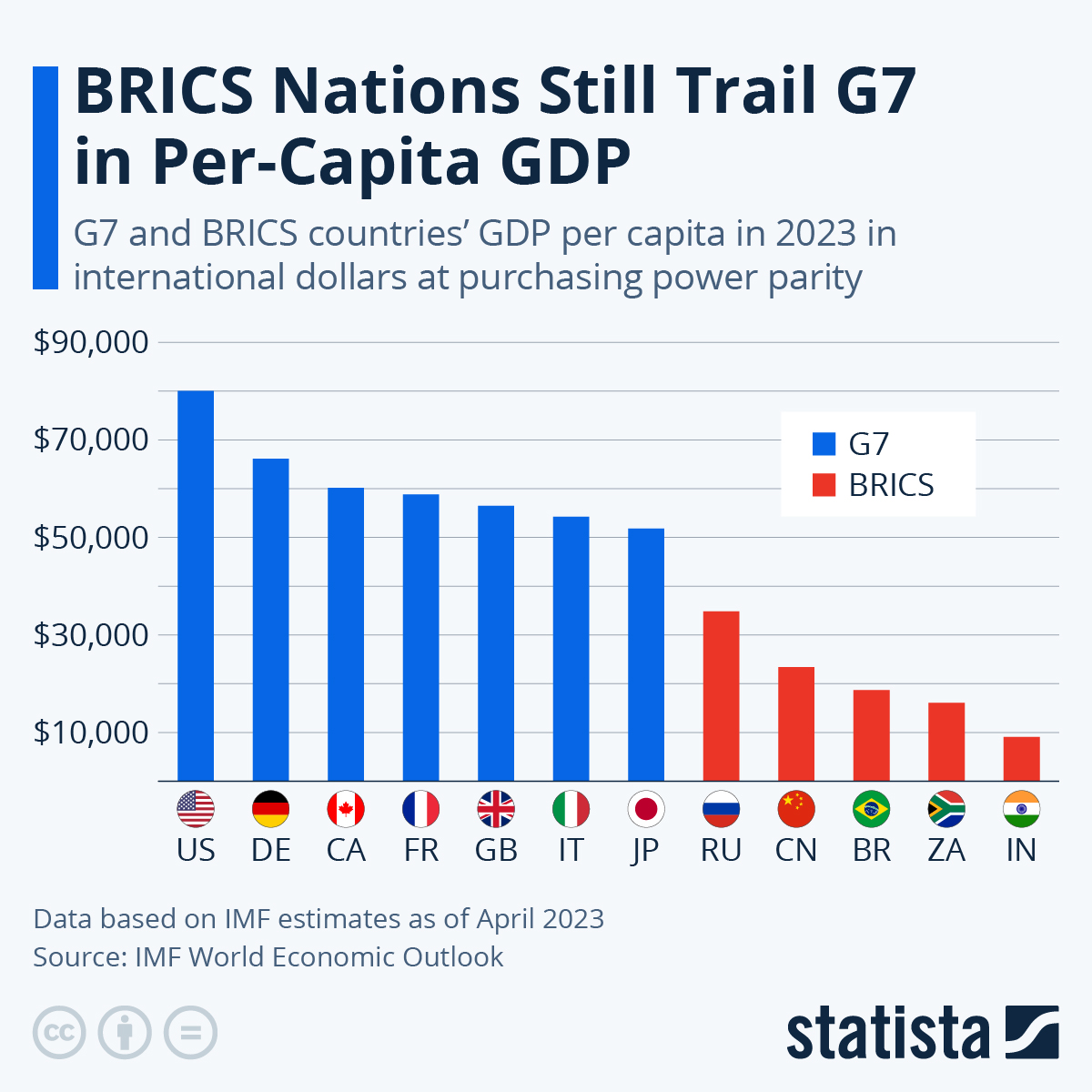BRICS seeks to expand its membership and become a champion of the "Global South," with over 40 countries expressing interest in joining the bloc to challenge Western dominance and address grievances related to abusive trade practices and neglect of poorer nations' development needs, among others. However, observers note that BRICS has a limited track record and may struggle to deliver on expectations.
BRICS has officially invited six new countries, including Saudi Arabia, the UAE, Egypt, Argentina, Iran, and Ethiopia, to join the bloc, potentially expanding the alliance into an 11-member group called BRICS+, which could have a major impact on the global financial sector.
The expansion of BRICS to include Iran, Saudi Arabia, Egypt, Ethiopia, Argentina, and the United Arab Emirates will make the bloc represent 46 percent of the world population and 37 percent of global GDP, but China's economic dominance within the group raises questions about whether it will truly be an "equal partnership."
The BRICS' economic output represents over 40% of the world's population and is predicted to reach 40% of global GDP by 2040, but skepticism remains about their effectiveness as a bloc due to differences in economic policy, China's dominant role, and conflicts among member countries.
The BRICS bloc, which has now expanded to include 11 countries, controls 30% of the global economy, 46% of the world's population, and a significant share of commodities such as manganese, graphite, nickel, and copper, as well as 42% of the global oil supply, potentially putting pressure on the US economy and challenging the traditional world order.
The extended BRICS alliance, which now includes six new countries, has a GDP in purchasing power parity (PPP) that accounts for more than one-third of the global economy, giving them the potential to control exports of oil to the West and influence trade settlement currency choices.
The G20, which is meeting in New Delhi, India, has seen a major shift in power dynamics over the past two decades, with the BRICS bloc now having a slightly higher combined GDP than the US, and EU countries accounting for around 20% of the G20's economic output.
The BRICS expansion, which includes countries like Saudi Arabia, the UAE, and Iran, has raised concerns in the U.S. and EU as it poses a threat to Western-dominated financial markets, while China's influence grows and the alliance aims for de-dollarization in global trade.

